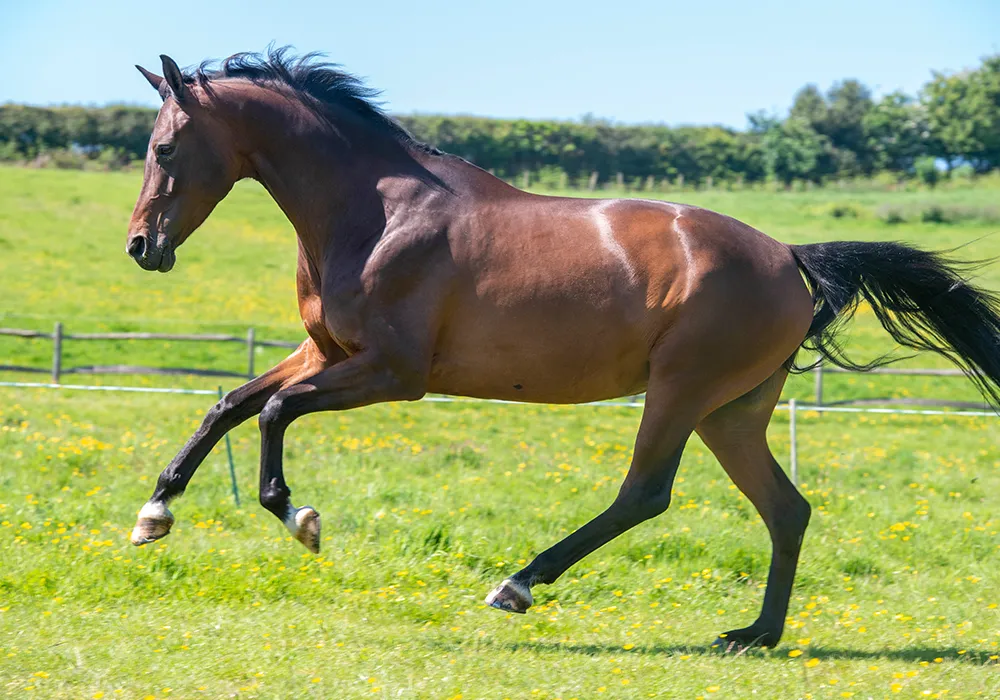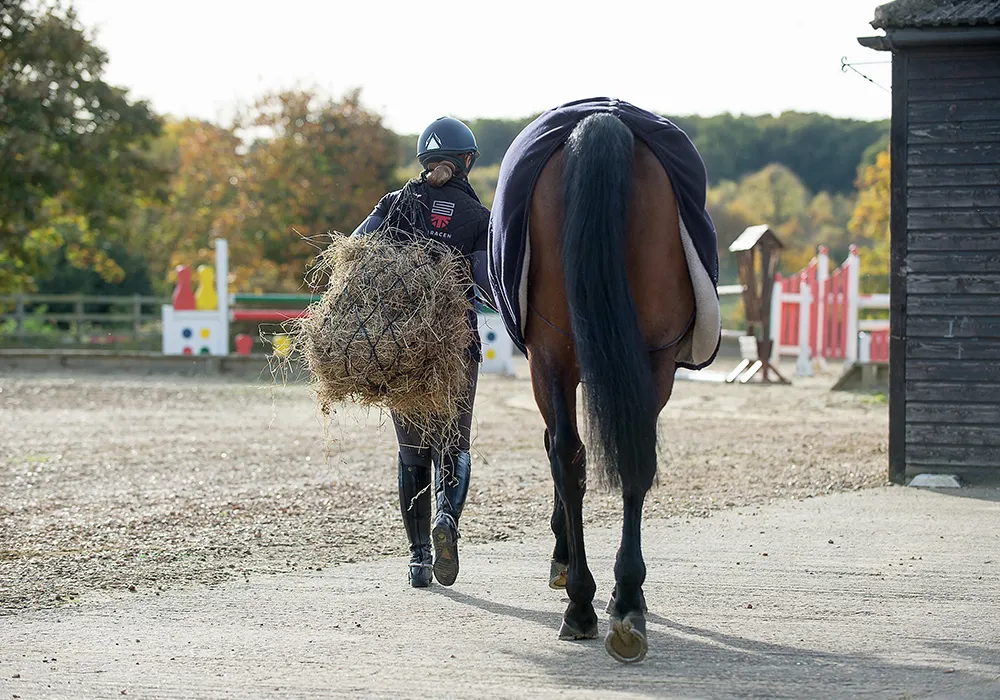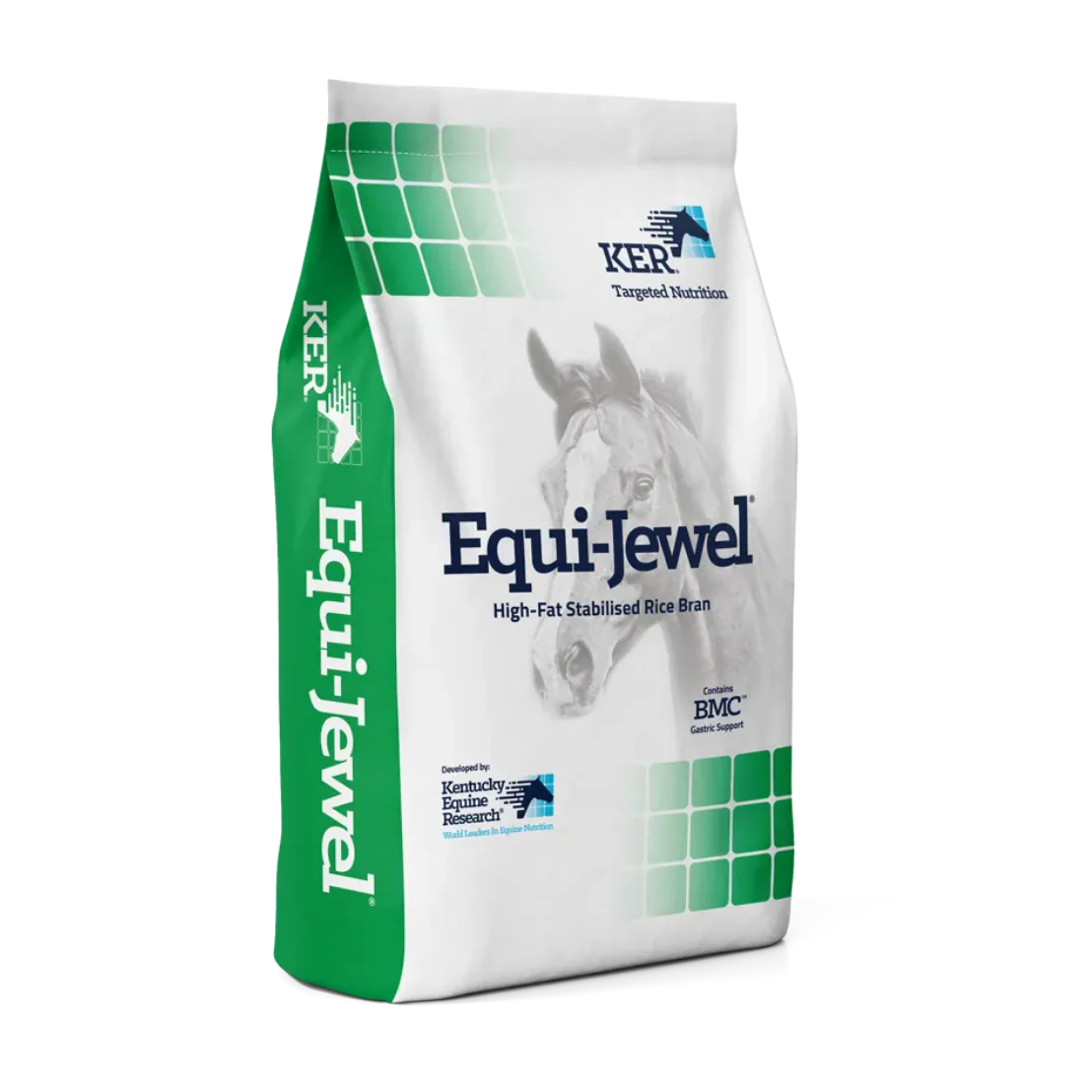Understanding Equine Muscle Myopathies

Muscle pain and impaired performance during or after exercise is known as exertional myopathy, often referred to as tying-up. These conditions can impact athletic performance and, in severe cases, even limit horses to casual riding. The most common equine myopathies include recurrent exertional rhabdomyolysis (RER), polysaccharide storage myopathy (PSSM), and myofibrillar myopathy (MFM). With correct diagnosis and management, many horses can return to comfortable performance.
Common Equine Muscle Disorders
Recurrent Exertional Rhabdomyolysis (RER)
RER is caused by abnormal muscle contraction during exercise, particularly in excitable breeds such as Thoroughbreds and Standardbreds. Signs include stiffness, muscle tremors, reluctance to move, shortened stride, anxiety, and elevated heart rate. Blood tests measuring CK and AST enzymes, along with muscle biopsy, confirm diagnosis.
Polysaccharide Storage Myopathy (PSSM)
PSSM results in excessive glycogen storage within muscles. PSSM1 is common in Quarter Horses, Paints, Appaloosas, and Draft breeds, while PSSM2 is often seen in Warmbloods, Arabians, and Standardbreds. Horses may sweat, paw, or refuse to move shortly after beginning exercise. Diagnosis is made through genetic testing or biopsy.
Myofibrillar Myopathy (MFM)
MFM) is a disorder defined by specific microscopic abnormalities in muscle fibres. MFM in Warmbloods is characterised by lack of stamina, reluctance to go forward, inability to collect, abnormal canter transitions, and insufficient strength to maintain a normal canter. Arabians may present with intermittent elevations in serum CK activity after exercise and traditional signs of tying-up (pain, reluctance to move, sweating). Biopsy will confirm diagnosis.
NUTRITIONAL STRATEGIES TO MANAGE EQUINE MUSCLE DISORDERS
Many horses can be managed successfully when a suitable diet, alongside other management considerations are in place. The specific disease dictates the most effective nutritional management plan.
Diet is central to supporting horses with myopathies.
- Horses with RER or MFM generally thrive on grass or grass-legume hay at 1.5–2% bodyweight, though alfalfa may need to be restricted.
- PSSM horses need hay with less than 12% NSC, requiring forage analysis and often pasture restriction.
- Concentrates should be tailored: moderate starch and fat for RER, low starch and high fat for PSSM, and balanced starch, fat, and quality protein for MFM.
Antioxidants like natural-source vitamin E, omega-3 fatty acids, amino acids (such as cysteine), and proven electrolyte supplements are highly beneficial across all types.
Let’s go a little more in depth into this…
Nutritional Plans for Horses with RER
How a horse with sporadic RER should be fed depends on the energy requirement as well as the quality and quantity of forage available. If low amounts of concentrate are required (less than 3 kg/day), supplemental protein, vitamins, and minerals may be required in the form of a ration balancer. Underweight horses might benefit from stabilised rice bran (0.5-0.9 kg /day).
For horses with chronic RER, concentrates should contain 12-18% NSC and 10-13% fat; these feeds often contain alternative energy sources such as highly digestible fiber (beet pulp, soy hulls).
Nutritional Plans for Horses with PSSM
Low-starch, high-fat feeds with less than 15% NSC are required for PSSM horses. If more calories are needed because of low concentrate intake (less than 2 kg/d), fat can be included in the diet. Vegetable oil or stabilised rice bran is often useful in this scenario. A balancer pellet may be necessary to satisfy protein, vitamin, and mineral requirements.
Nutritional Plans for Horses with MFM
Horses with MFM do not necessarily need low-NSC, high-fat diets, as fat, a potential source of oxidative stress, may not benefit them. As an example, endurance Arabians are often fed high-fat diets as they depend on fat oxidation during exercise, but MFM in Arabians is related to oxidative stress, so extremely high fat intake may be counterproductive. A concentrate for a horse diagnosed with MFM should include higher levels of protein (12-14%), including high-quality amino acids, and moderate levels of NSC (20-30%) and fat (4-8%).
Nutritional Supplementation is Key for Horses Diagnosed with a Myopathy
All seem to benefit from antioxidant supplementation including vitamin E and omega-3 fatty acid supplementation, especially marine-derived oil. Because performance horses sweat frequently, a research-proven electrolyte should be offered daily also. For horses diagnosed with MFM, a high-quality amino acid supplement with cysteine should be offered in conjunction with antioxidant therapy.
Remember, significant changes in the diet should be made over a period of a few weeks by switching gradually to give the horse’s gastrointestinal tract adequate time to acclimate to the changes.
ADDITIONAL RISK FACTORS FOR TYING-UP
Additional risk factors for muscle myopathy include adaptation to a new workload or style of work, for example increasing work on a deeper surface or an increase speed work. The unpredictable and sudden changes in weather can play a part in an acute episode also. A piece of work on a cold morning or race in the afternoon heat can cause problems with muscle function, be that cramping or fatiguing. Add to this excitability and stress, both of which can lead to sudden cases of tying up also and it's easy to see how simple changes of routine can be enough to lead to an episode. Sometimes to cause is more identifiable while other times, it can be difficult to pinpoint.
The other key factor for an acute episode is dietary energy intake being more than the current level of work. Starch is a necessary nutrient however, its intake needs to be carefully balanced against the workload.
Credit : Kentucky Equine Research – Exclusive partner to Saracen Horse Feeds
Need Guidance?
If you would like any further information on feeding your horse or pony please feel free to contact our nutritional team on +44 (0)1622 718 487, email info@saracenhorsefeeds.co.uk or fill out our Feed Advice Form.










